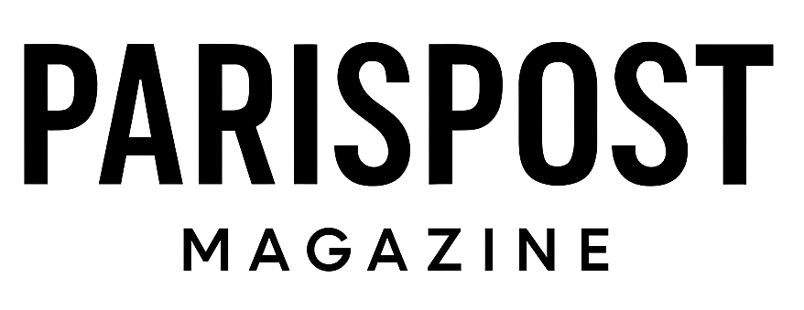As societal norms evolve, and generational values shift, one can't help but ponder: Is a new world order slowly emerging? Sometimes a little whining about how things used to be better isn't a bad thing at all. Often, it means that you must accept that you are getting older, but hey, that's also part of life. When I think of the past, I think of a more disciplined life and more togetherness. I am the youngest in a family of nine children. My father (1917) was a factory worker, and my mother (1916) faithfully took care of the household. They…...
Sign in with Google to continue reading
💬 Meet Our Members

Julia Orozco
Poet who love nature and writing poetry.
Tamizh Ponni VP
Tamizh Ponni VP is an ambivert who loves to express her skills…

Dr. B.H.S Thimmappa
B.H.S. Thimmappa is a seasoned chemistry professional with extensive experience in developing…

Abhinaba Maitra
Abhinaba Maitra is a Kolkata-based writer with a background in software engineering.…

Sindhu Gopalkrishnan
I love writing as I get to create something beautiful and touch…

Khushi Barman
I'm a 22-year-old Indian psychology student. I have a strong interest in…
Support independent journalism. Your membership keeps us going.
As societal norms evolve, and generational values shift, one can't help but ponder: Is a new world order slowly emerging?
Sometimes a little whining about how things used to be better isn't a bad thing at all. Often, it means that you must accept that you are getting older, but hey, that's also part of life. When I think of the past, I think of a more disciplined life and more togetherness. I am the youngest in a family of nine children.
My father (1917) was a factory worker, and my mother (1916) faithfully took care of the household. They were both born during the First World War, in which the Netherlands managed to maintain its neutrality. It was not an easy time, because, due to the war in Europe, there were many trade deficits in the country that automatically led to food shortages.

The first child in our family was born in 1940, just before the outbreak of the Second World War, a war in which our country was involved. In the beginning, the family suffered a lot from that war. My father had to work in a labor camp for the Germans, and an airplane bomb fell right next to our house. This was: "As I was later told, it had a lot of impact on my eldest brother's development." I was born in 1961, but when I look back in history books and listen to many of the stories about the time long before I was born, this was certainly not an easy time.
They were faced with the reconstruction of Europe, which was fortunately supported by the Marshall Plan, which came into force three years after the terrible war. Even today, we can be very grateful to the American Secretary of State, George C. Marshall (1880–1959), and his government for this. The Netherlands was rebuilt, and I slowly saw the light of day. In hindsight, my life is much easier than I always thought. Yes, I have always worked hard, first employed by many different companies, and then for my own training and coaching company.
I had to overcome many hurdles to make a living. In hindsight, many things could have been easier if I had been diagnosed as gifted and highly sensitive earlier, but I certainly can't complain. Now, back to the history of me and our family. As mentioned before, it was not easy for my parents. Before the First World War, people still lived under the assumption that they had to father a lot of children because who else was going to take care of you if you could no longer work? After all, the AOW, the old-age pension of Minister Willem Drees (1886–1988), was only introduced in 1957.
As a result, people over the age of 65 received a monthly benefit, which allowed them to stop working if they wanted to. Many developments followed one another, with the seventies and eighties being the years in which a lot happened. Mechanization and automation followed each other in rapid succession. The Mammoet Act (Minister Cals, 1958) was introduced, which greatly improved the school system. For my eldest brothers and sisters, this was "too late." They later fulfilled themselves seriously short.
Later, I wondered if, instead of constantly complaining about this, it would not have been better for them to take matters into their own hands. After all, evening classes already existed, and my parents had nine children, they had two or three. Throughout our upbringing, my parents worked hard and made sure that we, as children, even though we were not the richest, always looked neatly dressed and well-groomed. We still had "Sunday clothes," and our hair was often combed with a dust comb. We learned to speak two words to "grown-up" people.
You were also "raised" in a disciplined manner at school. You spoke with "two words" to the teachers, and there was a lot of controlled behavior. On the street, the police still walked with batons, who sometimes suddenly shot out even though a witness was standing by. That meant that you automatically behaved properly as a child. The punishments for wrong behavior were not mild back then, slapping with the carpet beater or solitary confinement in the coal shed (I was different). The upbringing at the time was based on the books of Doctor Benjamin Spock (1903–1998, Not from Spaceship Enterprise), who assumed that: "raising you was done with your right mind." He was not averse to the corrective tap, so to speak: "an old-fashioned spanking."
He believed that humans, like animals, sometimes had to be corrected properly, otherwise, the correction had little influence on the continuation of the life of the person to be corrected. In America, there are currently advocates for reintroducing this method of parenting. Why are young (and adult) people currently sufficiently corrected when something goes wrong, and by whom? The thoughts about this have changed a lot over time. As a parent, can or cannot you give a corrective slap?
Children are being corrected more and more "softly." Parents are increasingly taking their upbringing into their own hands, even during school hours. Teachers increasingly must justify themselves to parents about their behavior towards children in the classroom. These teachers must endure increasingly antisocial behavior from children.
Name-calling, recalcitrant behavior, bullying, and other behaviors are getting worse. And yes, the parents of the children who do this think that it is up to the teaching staff, but who is the educator? Because parenting is no longer allowed in schools, the police only beat if there are witnesses in the area who can indicate that they did not give the first blow, and parents are far too busy with their work and largely outsource the education of their children to employees of crèches and schools.
Who, oh, who feels and is at all in favor of the education and correction of our growing children themselves? Fortunately, I don't have children, and things have always been going well. After all, times are changing, and the world order has to change with it.











